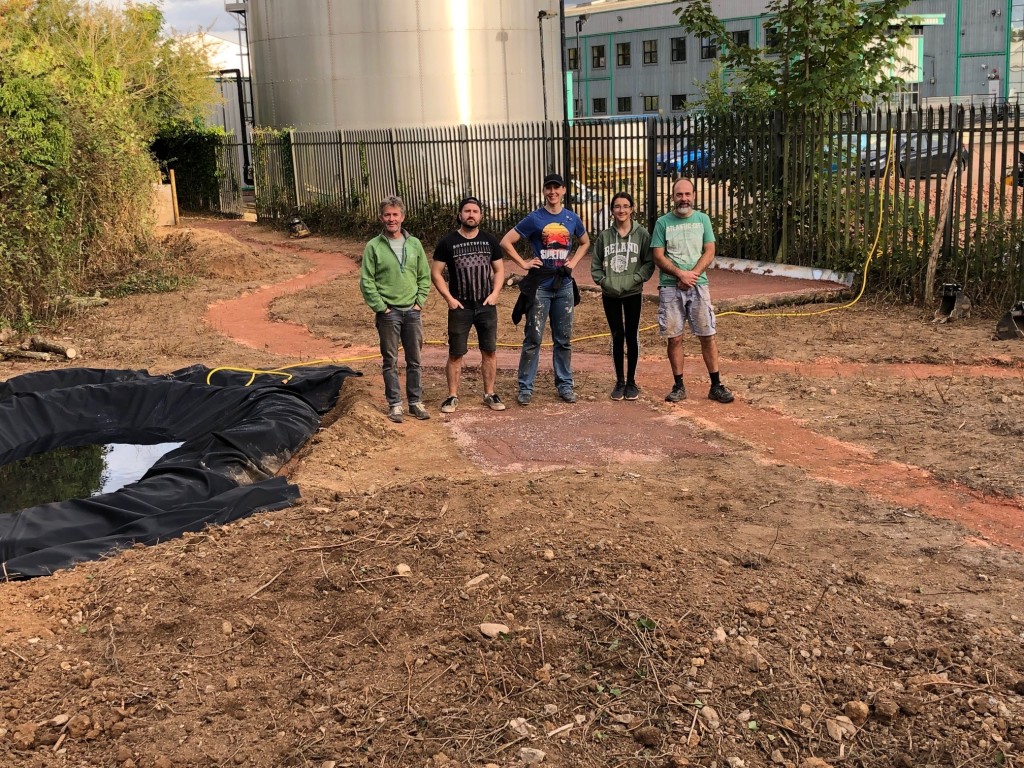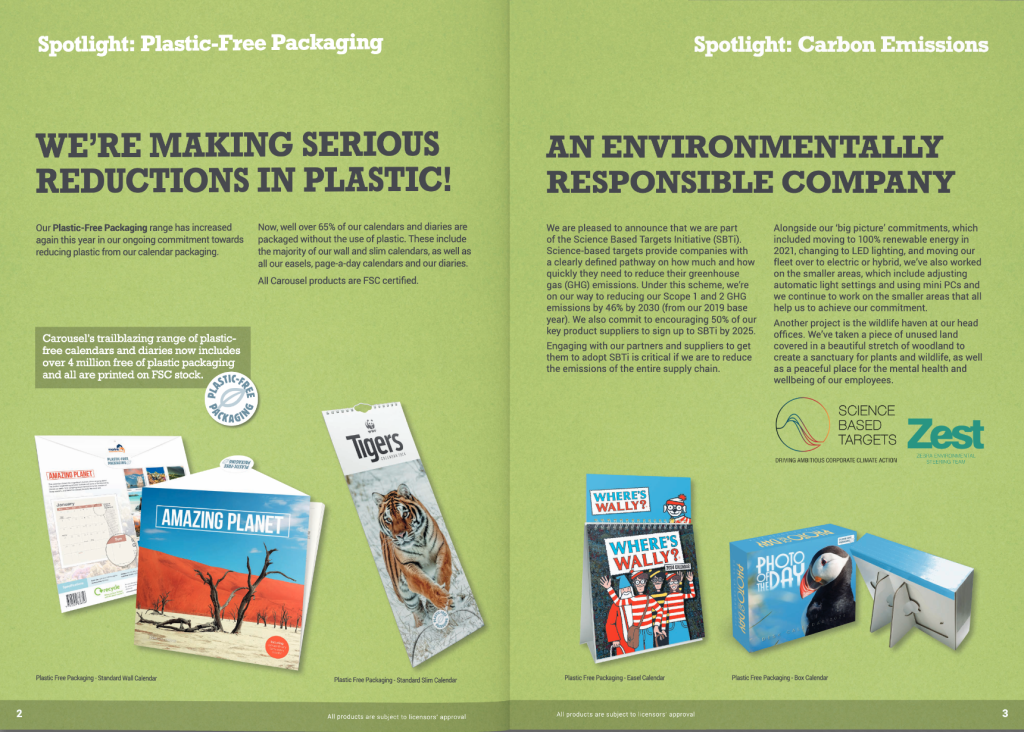Calendar firm’s secret garden project turns wasteland into wildlife haven
Carousel Calendars’ staff have been rolling up their sleeves for the environment with the launch of a project to turn an abandoned wasteland at its Exeter offices into a haven for wildlife, as part of its ongoing commitment to sustainability.
The secret garden is aimed at improving staff wellbeing at the calendar, greeting card and gift group that includes Carousel, Otter House and Calendar Club, along with environmental regeneration, thanks to the transformation of this patch of forgotten land.
“This is our secret garden,” said Andy Ellis, facilities and health and safety manager at Carousel’s parent company Zebra MTD. “We’re going to build a Buggingham Palace and get the kids involved in smaller parts of the project.

“The Staff Wildlife Haven will become a paradise for our staff to immerse themselves in nature – our vision is to have an easily accessible place made by us where diverse wildlife can thrive.”
The Haven will be divided into different areas, providing different habitats including dense native shrubland, a wild orchard, naturally-populated pond, wildflower meadow, and undulating scrubland, with a bridge over the stream to provides access to a woodland with seating areas.
With staff volunteering their time to the project, phase one of the transformation is now complete, with paths laid, the bridge under construction, and the pond mapped out and dug.

Andy added: “We have set ourselves principles, and all those principles are around species preservation, using recyclable materials, and having a low carbon footprint. Our Staff Wildlife Haven is about helping our staff engage with nature and appreciate the environment.”
Sustainability is very important to the business and Zebra MTD has already signed up the sister companies for the Science Based Targets Initiative (SBTI), a collaboration between global disclosure charity CDP, World Resources Institute (WRI), the Worldwide Fund for Nature (WWF), and the United Nations Global Compact (UNGC), which champions fact-based target setting in the transition to the low-carbon economy.
Targets adopted by companies to reduce greenhouse gas emissions are considered science-based if they are in line with the level of decarbonisation required to keep the global temperature increase below 2oC, and pursuing efforts to limit warming to 1.5 oC, compared to pre-industrial temperatures.

Over the past three years the group’s environmental steering group has acted to improve its carbon footprint, with the business making a number of changes including:
- Power sources changed to renewable electricity and biogas.
- Small fleet of cars changed to electric or hybrid.
- Added electric vehicle charging points in its car park.
- Cut plastics in products and packaging.
- Encouraged the use of sustainable materials in the supply chain.
- Implemented energy savings on premises, from LED lighting to changing thermostat temperatures, as well as making sure lights are off and doors closed.
Zebra MTD has committed to reducing Scope 1 and Scope 2 emissions by 46% by 2030 from a 2019 base year, and to measure and reduce its Scope 3 emissions, and the business aims to encourage 50% of its key product suppliers to sign up to SBTI by 2025.
Top: Volunteers from Otter House, Carousel and Calendar Club hard at work






















